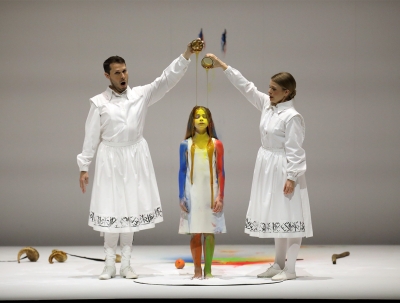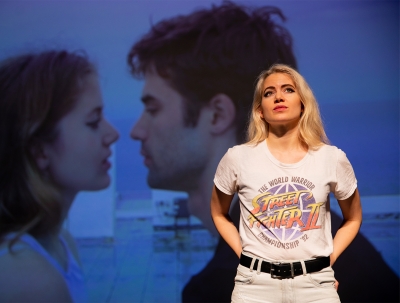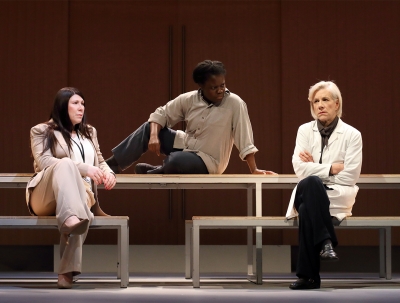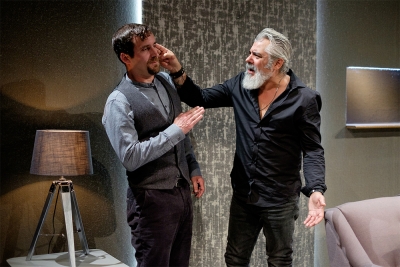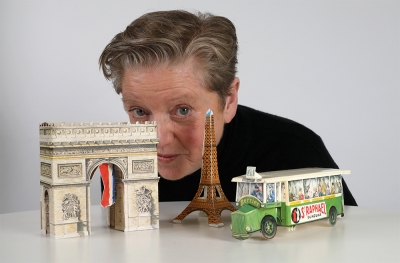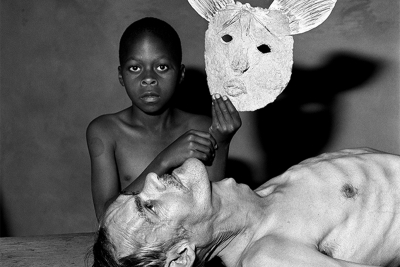Adelaide Festival
It may be that some members of the audience at Romeo Castellucci’s highly individual take on, and response to, Mozart’s Requiem, experience something similar. I certainly am aware from conversation (and observation) that some audience members did indeed respond to the stage images with closed eyes. But in doing so they denied themselves the opportunity to see and respond to some of the most evocative, poetic, and, yes, musical images seen on the Festival Theatre stage since Bo Holten’s Operation Orfeo back in the 1990s.
... (read more)In 2000, Mary Beard, the English scholar and classicist, published an autobiographical essay entitled ‘On Rape’ in the London Review of Books. It blazes, not in intensity of tone, but as writing that refuses to tame itself to one palatable or containable narrative. The essay allows for a space wherein questions are asked and there aren’t always answers, at least not ones that make us complacent. Beard professes to not being ‘particularly traumatised by what happened’ to her younger self, admitting that this might be a result of the experience itself having morphed into different iterations as she retold it to both herself and others. These tellings subsequently become ‘interpretations of what went on, which coexist ̶ and compete ̶ with the account’ that she writes in the opening of the piece.
... (read more)No one would maintain that Schnitzler’s original text does not need cutting and shaping for an updated presentation of the issues he was concerned with back in 1912. (One of the drollest observations about Schnitzler’s style comes from Franz Kafka, who noted that ‘it is replete with the quavering hollowness of literary pretensions’, though he was speaking specifically of Schnitzler’s late works.) But a play like Professor Bernhardi is no more nor less overwritten than some of Shaw. Here, at every turn, Icke’s ‘re-imagining’ (and his direction) opts for crude juxtaposition, where Schnitzler’s outlining of the issues can accommodate both subtlety and directness, ambiguity and clarity. And Icke’s simplification is reflected in the performances of most of the actors
... (read more)Ulster American (Traverse Theatre Company/Adelaide Festival) ★★★★★
In the program note for his most recent play, Belfast playwright David Ireland claims that ‘he became a playwright after being unemployed and unemployable as an actor for three years, despite having trained as an actor for three years at the Royal Scottish Academy of Music and Drama ...
... (read more)For the uninitiated, a maquette is an architectural miniature of a monument or building. Small, made from cardboard or wood, and often able to be flat-packed, travellers have long collected them as souvenirs of adventures to faraway places. Robyn Archer, doyenne of Australian cabaret ...
... (read more)Roger Ballen’s art is not for the faint hearted; it is confronting, haunting, and at times repellent. It is also fascinating, brilliant, and jaw-dropping. These images seethe with malodorous discontent, menace, and psychosis. The best way to experience his photographs is to surrender and resist the desire to read the images literally ...
... (read more)Mozart’s final opera, The Magic Flute, is a staple of Germany’s opera houses, and continues to be frequently produced in theatres internationally. Melbourne-born Barrie Kosky found himself under pressure to deliver a production of the 1791 Singspiel – comic opera with spoken dialogue ...
... (read more)This year’s Adelaide Festival opening night was one for standing ovations, and the revival of Meryl Tankard’s Two Feet, danced by internationally acclaimed Russian ballerina Natalia Osipova, certainly earned one. Commissioned for World Expo 88 by former festival director Anthony Steel, Two Feet ...
... (read more)Geoff Dutton was a man-of-letters who for many years made (with Max Harris) Adelaide seem one of the lively centres of Australian literary culture. One thinks of him in association with the magazines Angry Penguins, Australian Letters, and the original Australian Book Review, not to mention the inauguration of an Australian publication list for Penguin Books, and then, when that soured, the setting up of Sun Books, one of the most innovative of Australian publishing ventures at that time – which was in the difficult slough period of the 1950s and 1960s and into the 1970s.
... (read more)
